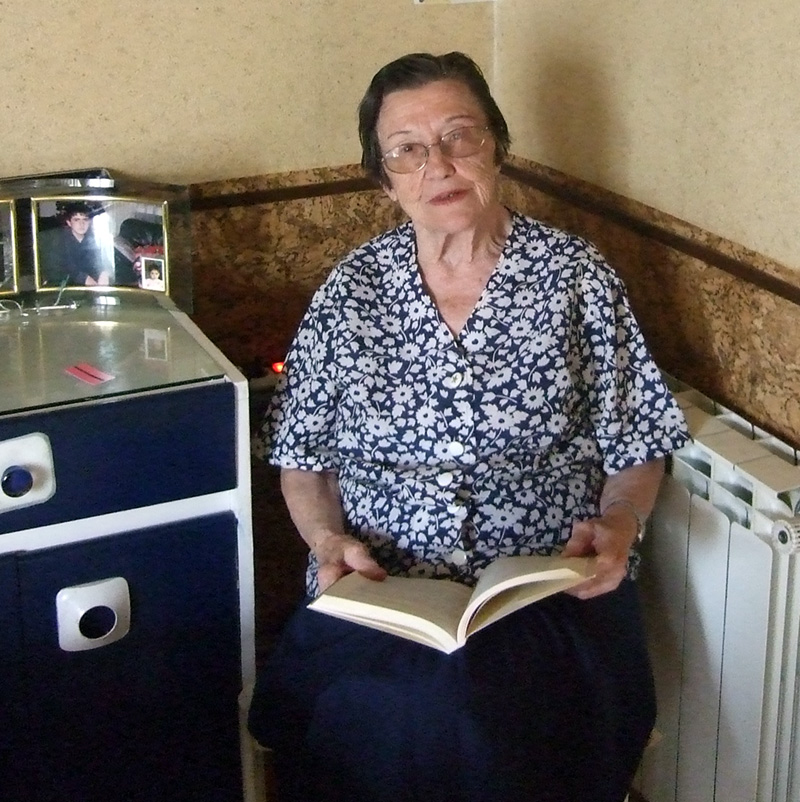
Ángeles Ortega García-Madrid
Born in Torrejón de Ardoz, Ángeles García-Madrid grew up in the Pacífico district of Madrid. The daughter of a railway worker, she began collaborating with the Socialist Circle at the age of sixteen and became a member of the PSOE.
At the outbreak of the war, she was responsible for workshops that produced clothing for the frontlines, and later worked as a tram conductor. In May 1939, she was arrested, tortured, and imprisoned. In the Ventas prison in Madrid, she encountered the “Thirteen Roses,” a group of young women who were executed on 5 August, along with 43 men.
In 1940, Ángeles was sentenced to twelve years in prison for "aiding the military rebellion." That same year, she was transferred to the women’s prison in Tarragona, run by the Oblate Sisters. After two weeks, she was moved to Les Corts prison in Barcelona in the summer of that year.
Ángeles spent around three months in Les Corts before being transferred to Girona prison, where she fell seriously ill. In February 1942, she was released following the application of pardoning decrees and returned to Madrid.
A lifelong lover of literature, she was finally able to publish her memoirs and poetry collections after the death of the dictator. For twelve years, she served as the Secretary of Culture for the Association of Anti-Fascist Former Political Prisoners and Repression Victims, where she helped promote the initiative for a monument to the poet Miguel Hernández in the Parque del Oeste, Madrid, created by Enrique Domínguez Uceta in 1985.
In 1982, she published a landmark book about her prison experience, Réquiem por la Libertad, which was reissued in 2003. Among her numerous awards, she received the "Ana Tutor" prize from the Socialist Party of Madrid-PSOE in May 1999. In 2012, she was honoured at the headquarters of the Socialist Party of Madrid (PSM), and the following year, she was awarded the inaugural Culture Prize.
Ángeles passed away on 8 November 2015. In 2018, a street in the Adelfas neighbourhood in the Retiro district of Madrid was named in her honour.











